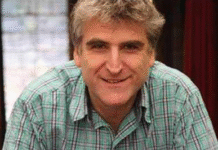Tarek Mahmud
The al-Badr members used to torture people and killed them for not bowing down before them
The three-storey Daleem Hotel on Nazir Ahmed Chowdhury Lane in Chittagong city’s Old Telegraph Road is an enduring symbol of al-Badr’s brutal treatment of pro-liberation people in 1971.
Within its premises, supporters of Bangladesh’s independence were mercilessly tortured under the supervision of Mir Kashem Ali.
The Mahamaya Bhaban, owned by Hindu landlord Sri Ranjan Nath, was occupied by al-Badr operatives allegedly under the supervision of Mir Kashem, who was then a top leader of Islami Chhatra Sangha and commander of the al-Badr militia force’s greater Chittagong region unit.
The al-Badr members tortured and killed people for not bowing down before them. Those who managed to escape still flinch when they recall the horror of those days.
A seven-member investigation team of the International Crimes Tribunal, during a visit to the city on September 25 and 26, 2010, found that the Pakistani Army and their collaborators including Mir Kashem had set up a torture cell at Daleem Hotel.
They learned that Jamaat-e-Islami leader Mir Kashem and his accomplices had been involved in crimes against humanity including mass killings, rape, loot, arson and torture during the war.
“I was kept in a dark, dirty and damp room with many others for three or four days. Our hands and feet were bound with rope and we were blindfolded. Members of al-Badr force kicked and beat us for no reason,” Dr Irshad Kamal Khan, the pro-VC of Chittagong Independent University, said.
He was picked up by al-Badr men at the end of November 1971. An HSC first year student at Chittagong Government College, he was preparing to receive training to join the liberation struggle.
“I was picked up with several other people. We were taken to the Daleem Hotel in a truck by al-Badr men dressed in khaki. They forced us to chant ‘Pakistan Zindabad.’ Those who refused to say this were beaten up,” he said.
“We were given nothing to eat and had to urinate in the same room. During my captivity of several days, I was given food to eat – panta [fermented rice soaked in water] and fish bones – just once,” he said.
Leftist leader Saifuddin Khan, whose body bore the marks of torture until his death in 2007, in an interview with journalists, mentioned the names of Mir Kashem and some other Jamaat leaders as members of al-Badr. His brother was a freedom fighter.
The interview was published in 2007 in a book to honour his memory, his wife Nurjahan Khan said.
Saifuddin overheard the name of Mir Kashem being spoken during the conversations of al-Badr men at the Daleem Hotel.
When the inmates asked for water, the al-Badr men used to urinate on their faces and abused them verbally. They were beaten regularly with iron rods and sticks.
“The detainees would know when someone had died when they saw flies settle on their lifeless bodies,” she said.
Journalist Arun Das Gupta, advocate Nurun Nabi Chowdhury and others were picked up from their residences on November 25, 1971 – a day before they were supposed to go to Agartala to be trained for battle.
They were tortured brutally at the Daleem Hotel until December 16, Nurjahan told the tribunal’s investigation team in 2010.
Saifuddin told her that Mir Kashem and Abul Kalam had been the kingpins of the al-Badr group that tortured them. “I had no hope of getting him back,” his wife told the Dhaka Tribune.
On February 25, two prosecution witnesses – Nazim Uddin and Md Hasan – testified at the tribunal in the case against Mir Kashem.
They accused Mir Kashem of being the leader of the torture cell where people had been tortured to obtain information about the plans and locations of freedom fighters.
Nazim said he, along with his uncles and cousins, had been picked up by al-Badr members on November 30, 1971 and taken to the Daleem Hotel. “There I came to know that Mir Kashem was the leader of that cell. Luckily I was set free by Mir Kashem because my father was able to make a request with the help of a man,” the witness said.
Md Hasan said he was taken to the torture cell at the Daleem Hotel along with his father and some other neighbours on November 29, 1971. Hasan was later set free as he was just a child.
Source: Dhaka Tribune










